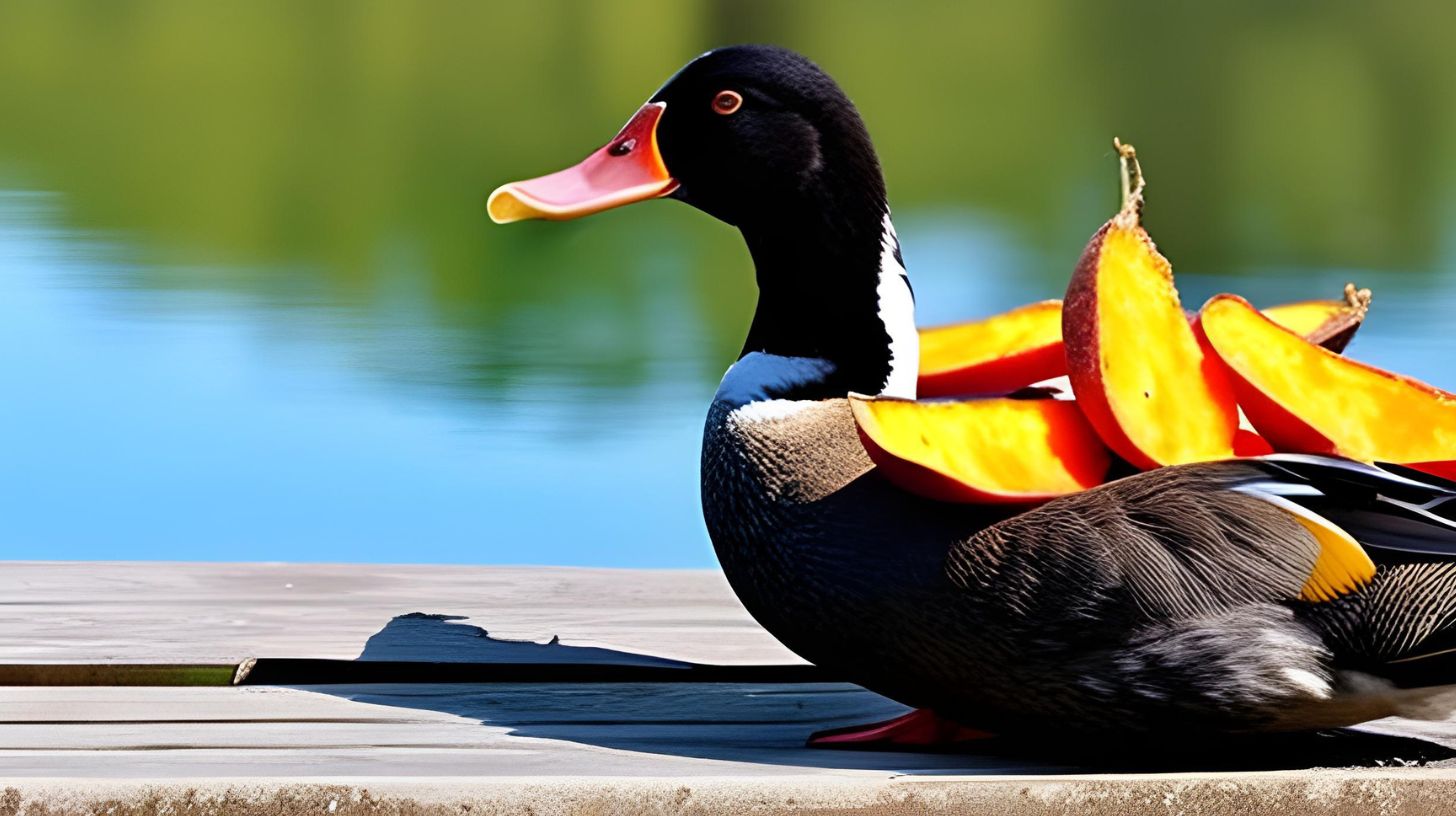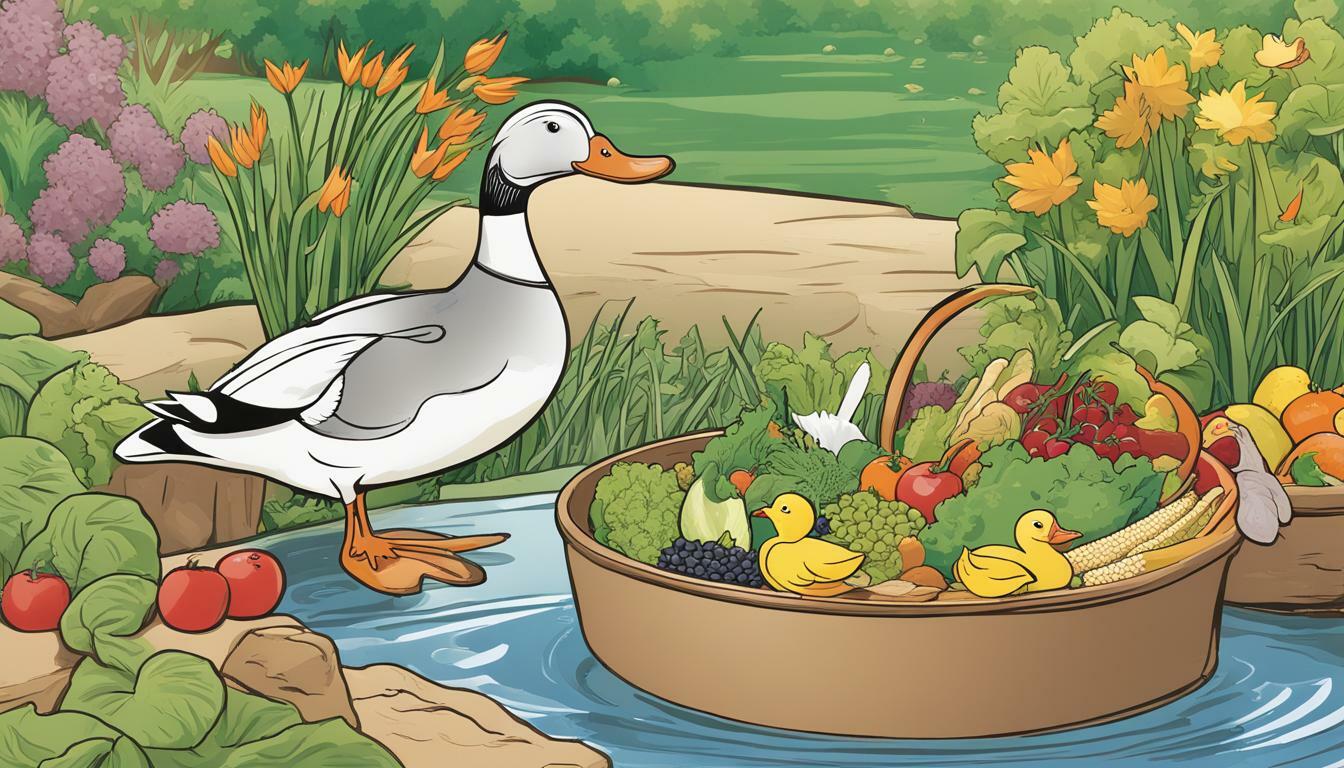Do Ducks Eat Lizards? The Surprising Truth
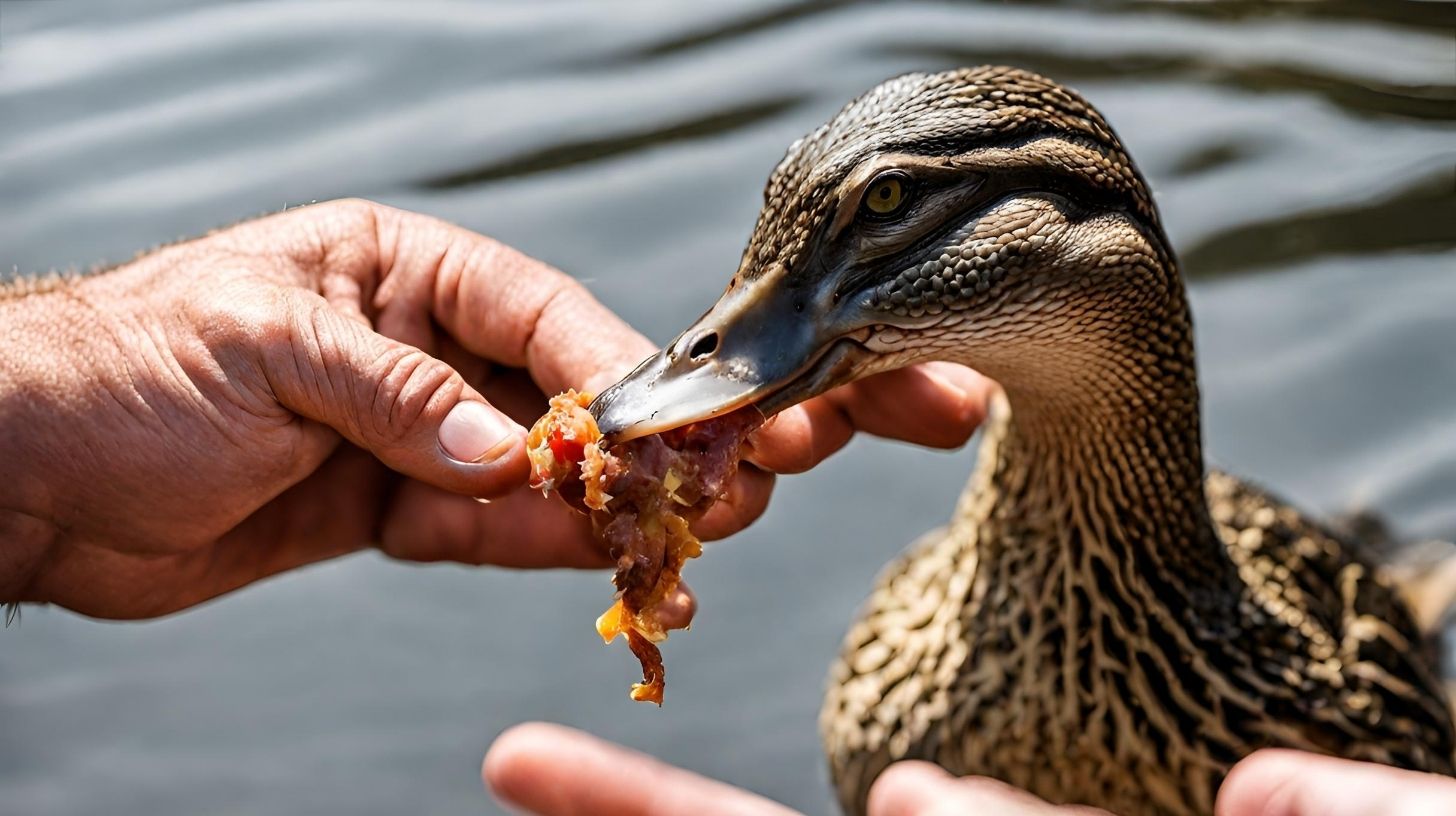
Table of content:
- Do Wild Ducks Eat Lizards?
- Do Pet Ducks Eat Lizards?
- Why Do Ducks Sometimes Eat Lizards?
- What Types of Lizards Do Ducks Eat?
- How Do Ducks Catch and Eat Lizards?
- Are Lizards Safe or Healthy For Ducks to Eat?
- Are There Any Risks With Feeding Ducks Lizards?
- How Much Lizards Can Ducks Eat Safely?
- Frequently Asked Questions
- Conclusion
Ducks are omnivorous birds that eat a varied diet consisting of plants, insects, small fish, and amphibians. Their diverse foraging behavior allows them to take advantage of many food sources. But an interesting question arises – do ducks eat lizards?
Key Takeaways:
- Ducks are opportunistic feeders and will eat lizards if they come across them.
- Small lizards like anoles and skinks may be swallowed whole by ducks. Larger lizards are avoided.
- Ducks primarily eat aquatic insects, plants, fish and amphibians. Lizards form a very small part of their diet.
- Eating lizards provides ducks with essential nutrients like protein, calcium and vitamins.
- Wild ducks eat live lizards but duck owners should avoid feeding raw or uncooked lizards due to health risks.
Lizards form a relatively insignificant portion of a duck’s diet in the wild. Ducks are aquatic birds that thrive in wetland ecosystems like marshes, streams, ponds and lakes. Their natural diet consists of aquatic plants, insects, fish eggs, frogs, tadpoles and small fishes that live in their habitat.
However, ducks are opportunistic feeders. This means that although they primarily eat food found in water bodies, ducks will also forage for terrestrial insects, worms and even small vertebrates like lizards if the opportunity presents itself.
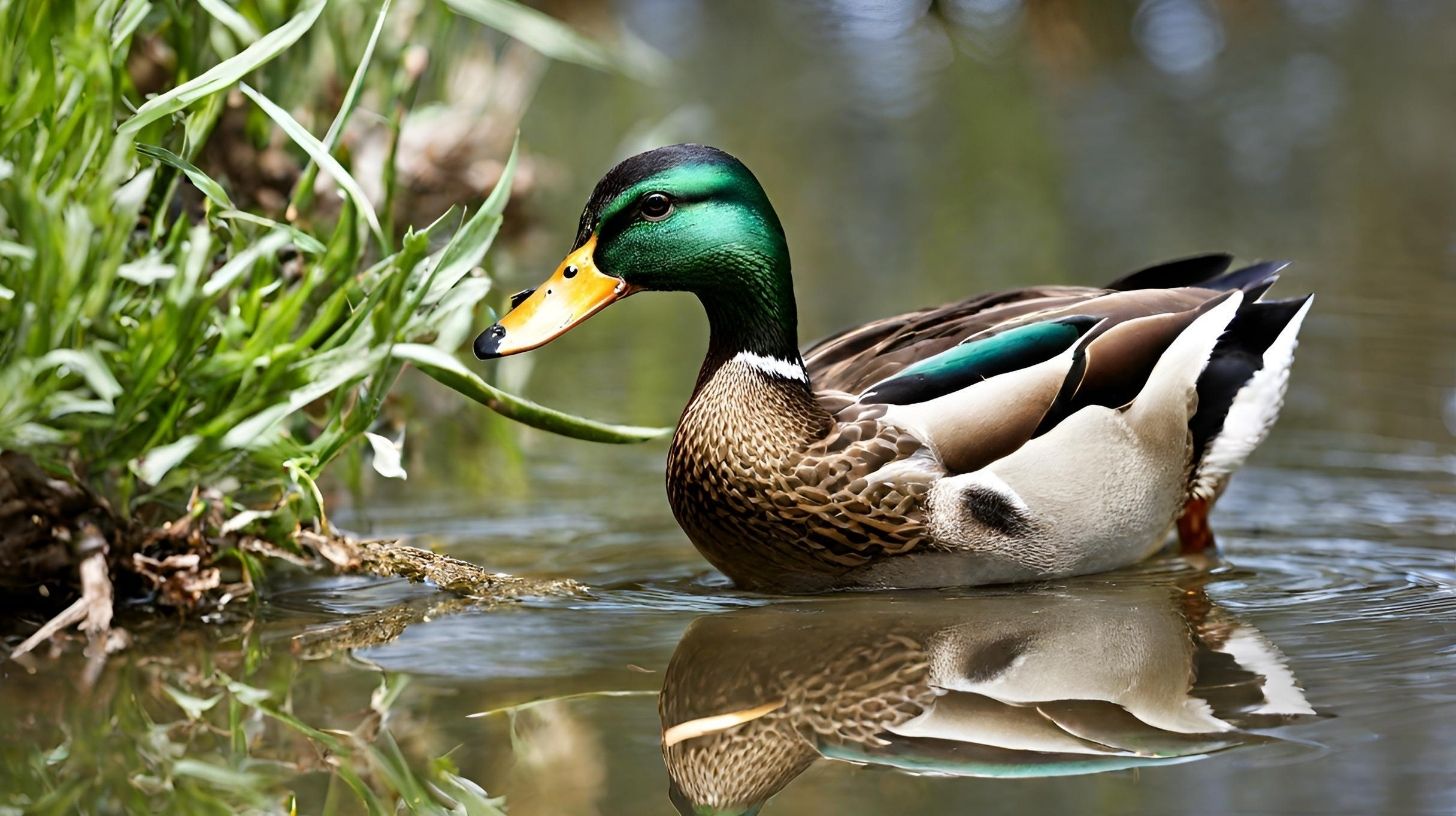 Do Wild Ducks Eat Lizards?
Do Wild Ducks Eat Lizards?
Wild ducks inhabiting lakes, ponds and wetlands dominated by aquatic vegetation may occasionally eat small lizards like skinks and anoles that live nearby. However, lizards do not form a major part of their diet.
Some key points on wild ducks eating lizards:
- Ducks swallow small lizards whole – Larger lizards are avoided as they can injure a duck’s throat. But small lizards like skinks and anoles are swallowed completely.
- Ducks forage in shallow water – This allows them to grab small lizards near the water body. Ducks don’t venture far from the safety of water to hunt lizards.
- Lizards provide protein – Eating lizards supplements ducks’ primary diet of plants and insects with extra protein for growth and reproduction.
- Lizards are not staple food – Ducks spend more time foraging for aquatic plants, insects, fish and amphibians compared to the minimal time spent catching lizards.
So in summary, wild ducks are opportunistic feeders that will eat small lizards if they come across them near water bodies. But lizards form a very insignificant part of their varied diet.
| Type of Duck | Lizards Eaten |
|---|---|
| Mallard | Small skinks, anoles |
| Muscovy | Small lizards like skinks |
| Domestic Duck | Avoid due to health risks |
Do Pet Ducks Eat Lizards?
Pet ducks can eat skinks, anoles and other small lizards if they catch them. However, lizard consumption comes with some health risks for domesticated ducks:
- Choking hazard – Pet ducks did not evolve to hunt lizards. Larger lizards may pose a choking risk if swallowed.
- Salmonella – Reptiles like lizards carry salmonella bacteria. Eating them raw can make ducks sick.
- Parasites – Wild lizards may be infected with parasites like worms and protozoa. These can be passed onto ducks.
So it’s better to avoid feeding lizards to pet ducks. Some safer protein alternatives include cooked eggs, mealworms, diced boiled chicken and crickets. An occasional cooked skink offered as a treat should be safe though.
Why Do Ducks Sometimes Eat Lizards?
Ducks are omnivorous and eat both plant and animal matter. Here are some reasons why they may occasionally snack on lizards:
- Protein source – Lizards provide ducks with high quality protein for growth and egg production. Aquatic insects that ducks regularly eat are also good protein sources.
- Opportunistic foraging – Ducks will eat any small animal they can swallow. Lizards near water bodies may sometimes be eaten.
- Nutrients – Lizards provide vitamins and minerals like calcium, phosphorus and iron missing from an exclusively plant-based diet.
- Duckling diet – Growing ducklings need extra protein. Small lizards supplement their regular diet of worms and insects.
- Alternate food source – Ducks depend on water bodies for food. But lizards allow them to forage on land occasionally.
So in moderation, eating the occasional small lizard helps supplement essential protein, vitamins and micronutrients in a duck’s diet.
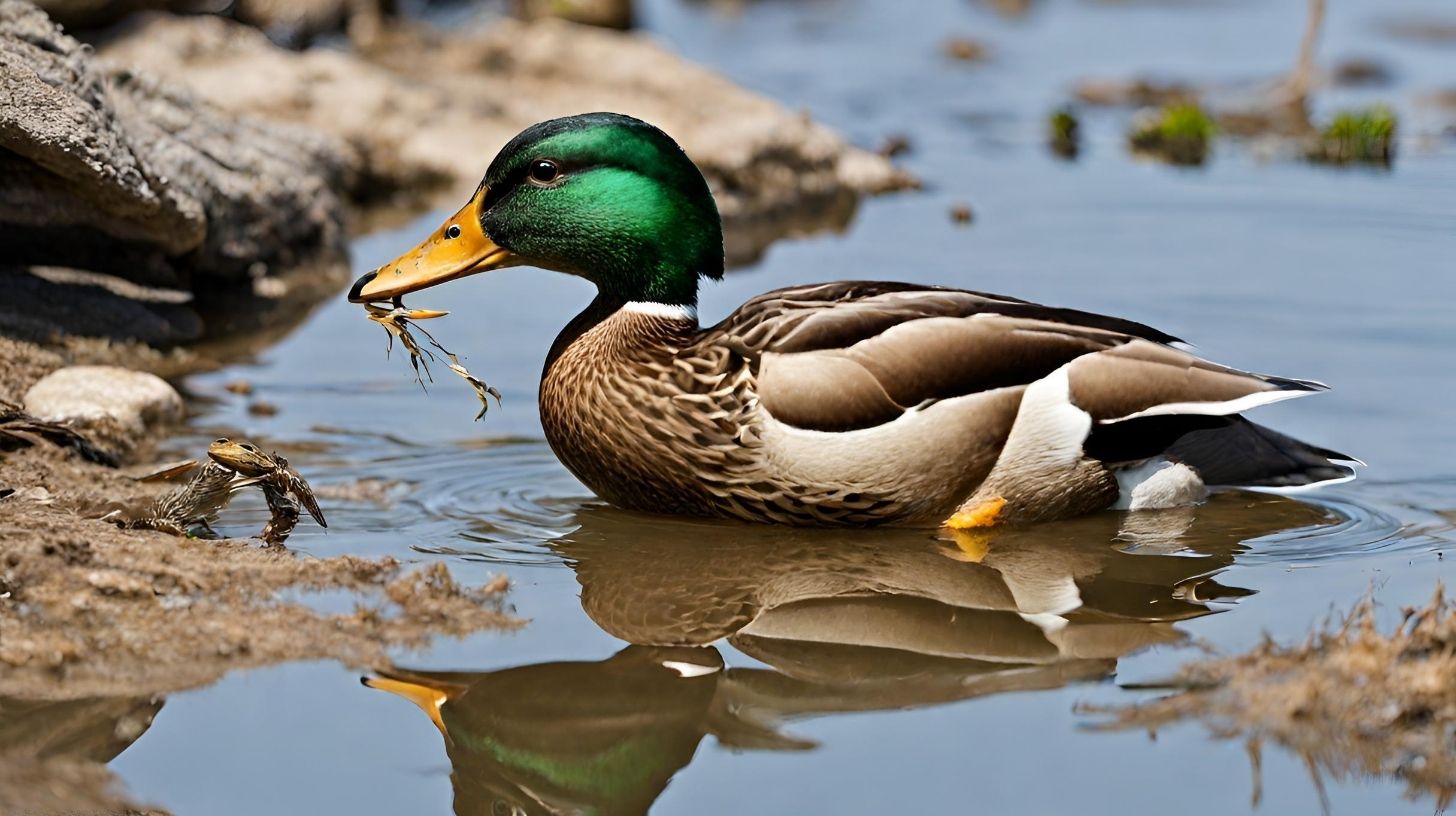 What Types of Lizards Do Ducks Eat?
What Types of Lizards Do Ducks Eat?
Ducks are only able to swallow small lizards whole. Large lizards are avoided as they pose a choking risk. Some examples of small lizards ducks can eat include:
- Skinks – Small skinks are common prey. Their small size allows ducks to easily swallow them.
- Anoles – Fast moving anoles can sometimes be eaten if caught by ducks.
- Geckos – Small geckos may supplement ducks’ diet when found near water.
- Fence lizards – Juvenile fence lizards are just the right size for ducks to swallow.
- Snake lizards – These small lizards occasionally end up as duck prey.
Larger lizards like iguanas, monitors, tegus and Komodo dragons are avoided by ducks due to their size. Ducks also spend minimal time hunting for land-based prey like lizards. Their aquatic insect and plant diet takes priority.
How Do Ducks Catch and Eat Lizards?
Ducks employ a variety of techniques tailored to catch small, quick lizards:
- Stalking – Ducks slowly approach lizards sunning themselves near water. Once close, they strike.
- Foraging in vegetation – Ducks will overturn leaves and debris near water to uncover hidden lizards.
- Grabbing – Their quick beak allows ducks to grab exposed lizards and swallow them whole.
- Dabbling – Ducks tip up and grab lizards from shallow water and wet mud.
- Group hunting – More eyes help detect hidden lizards. Duckling groups may learn to hunt as a team.
- Coordinated herding – Some duck species are known to work together to herd insects and small vertebrates into water for easy capture.
Once caught, lizards are swallowed whole and alive. Ducks do not have teeth to chew prey. Their digestive system is equipped to digest whole lizards, bones and all.
Are Lizards Safe or Healthy For Ducks to Eat?
Eating wild caught lizards raw does carry some health risks for ducks:
Potential Health Risks of Eating Lizards
- Salmonella infection
- Parasitic worms
- Protozoa like Giardia
- Internal injury and choking
However, lizards are still a nutritious food source if proper precautions are taken:
Benefits of Eating Cooked Lizards
- Excellent source of protein
- Essential vitamins and minerals
- Calcium for egg shell formation
- Phosphorus for growth
- Iron, zinc, magnesium and more
Safety Tips
- Cook lizards thoroughly to kill parasites and bacteria
- Avoid wild-caught lizards which may be diseased or parasitic
- Only feed ducks lizards that can be easily swallowed whole
- Monitor portion size and frequency to avoid overfeeding
So in moderation and with proper preparation, cooked lizards can be an occasional nutritious supplement for ducks. But raw wild-caught lizards or large portions are best avoided.
Are There Any Risks With Feeding Ducks Lizards?
There are some health and safety risks to be aware of when ducks eat lizards:
- Choking – Large lizards or those eaten head first can get lodged in the throat.
- Impaction – Indigestible bones accumulate in the digestive tract.
- Bacterial infection – Salmonella is common in reptiles. Eating raw lizards can transmit this bacteria.
- Parasitic infection – Tapeworms, nematodes, flukes and protozoa can be passed from lizards to ducks.
- Toxicity -consuming diseased or pesticide laden lizards can prove toxic for ducks.
- Nutritional imbalance – Too much protein from lizards and too little fiber from plants can cause illness.
With cooking and proper portion control, the risks are lowered. But moderation is advised when feeding ducks raw wild lizards. Sick or dead lizards should be avoided completely.
How Much Lizards Can Ducks Eat Safely?
There are no set guidelines on how much lizard ducks can safely consume. Factors like the duck’s size, age and overall diet should be considered. Some general recommendations:
- Limit portions – Lizards should not dominate the diet. Offer small portions along with vegetation.
- Rotate proteins – In addition to lizards, provide insects, fish and poultry for variety.
- Avoid daily meals – Feed lizards only occasionally as a supplement, not daily.
- Small lizards only – Only feed lizards small enough to be easily swallowed whole.
- Cook thoroughly – Kill any parasites and bacteria by cooking lizards through.
- Monitor for illness – Discontinue lizard feeding if any sickness symptoms appear.
Adult ducks in the wild may safely eat several thumb-sized lizards per day along with their normal diet. But it’s best to be conservative when feeding pet or domesticated ducks to minimize risk. Cooked lizard meat fed a few times per month is a good rule of thumb.
Frequently Asked Questions
Can ducks eat lizards every day?
No, lizards should only supplement a duck’s diet occasionally, not daily. Frequent meals of raw lizard meat can expose ducks to excessive bacteria, parasites and choking hazards.
What nutrients do ducks get from eating lizards?
Lizards provide protein for development, calcium for eggshells, phosphorus for bone growth, and essential vitamins and minerals like iron, zinc and B vitamins.
Do ducks hunt lizards for food?
Actively hunting lizards would be risky for ducks since they are adapted to aquatic environments. But ducks will opportunistically eat lizards near water. They don’t venture far onto land looking for them.
Can ducks eat big lizards like monitors?
No, large lizard species are too dangerous for ducks to swallow. Ducks only eat small lizards that can be swallowed whole like skinks and anoles.
Are raw or cooked lizards healthier for ducks?
Cooked lizard meat is safer since cooking kills salmonella, parasites, and other disease-causing organisms. But raw lizard meat likely provides more nutrients. Moderation is key for either.
Can too many lizards make ducks sick?
Yes, eating many raw lizards frequently can cause bacterial infections, parasites, gastrointestinal obstruction, or nutritional deficiencies long-term. That’s why moderation is advised.
Conclusion
Ducks are omnivorous foragers that will eat small lizards in addition to aquatic plants and insects. Wild ducks consume tiny lizards like skinks and anoles on occasion when they come near the water’s edge. But hunting land-based prey is risky for ducks.
Lizards make up only a small fraction of their diverse diet. Pet ducks can also eat cooked lizards but raw wild-caught ones may transmit disease or parasites. Overall, lizards provide ducks with supplemental protein, vitamins and minerals.
Welcome. I’m Adreena Shanum, the proud owner of this website, and I am incredibly passionate about animals, especially poultry. I founded adreenapets.com as a labor of love, stemming from my desire to share my knowledge and experiences with poultry enthusiasts worldwide.


